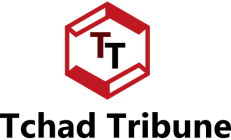The Special Investigative Panel on Oil Theft/Losses in Nigeria, has submitted its report to the National Security Adviser (NSA), retired Maj.-Gen. Babagana Monguno, in Abuja.
The Head, Strategic Communication, Office of the National Security Adviser (ONSA), Mr Zakari Usman, in a statement on Tuesday, said the report was submitted on Monday.
While submitting the report, the Chairman of the panel, retired Maj.-Gen. Barry Ndiomu, said the panel engaged key stakeholders from within and outside the oil and gas industry.
Ndiomu said stakeholders from state governments, ministries, departments and agencies, security agencies, regulatory agencies, international and indigenous oil companies, traditional institutions, host communities, artisanal refiners, among others were also engaged.
He said the panel received and reviewed several memoranda and reports on oil theft and losses during the various engagements.
According to him, the panel discovered several layers of involvement in the illegal theft of crude oil in spite of the best efforts of the Armed Forces and other security agencies to combat oil theft.
“The panel also observed that crude oil losses arose from lack of proper reporting of crude oil production, illegal refining, theft from wellheads and diversion from sophisticated pipelines network.
“The panel also attributed losses to the absence of a robust industry-wide metering system and an unworkable security arrangement.
“The confusing roles of regulatory agencies was also cited as being responsible for making the detection of theft/losses difficult,” he added.
Ndiomu called for quick implementation of the report and asserted that if the government implemented the recommendations in the report, oil theft/losses would be adequately addressed.
He said prompt implementation of the report would not only create an immediate impact on crude oil production levels to meet OPEC’s quota but would also attract foreign direct investment and serve Nigeria’s economic and national security concerns.
Receiving the report, the NSA thanked the panel for keeping to the timeframe and for addressing the issues of oil theft and losses comprehensively.
Monguno assured that government would study the report and see to its immediate implementation, especially the recommendations with short-term perspectives.
The News Agency of Nigeria (NAN) reports that the NSA had on Dec. 6, 2022, inaugurated the investigative panel with extensive terms of reference to investigate all aspects of crude oil theft/losses in all its ramifications.
The panel was expected to investigate oil theft/losses in all its ramifications and propose wide ranging implementable recommendations to enable the administration take decisive action to end the criminal enterprise within the shortest possible time.
The panel was given 10 weeks to complete the assignment effective from the date of inauguration. (NAN) (www.nannews.ng)
Source: News Agency of Nigeria
